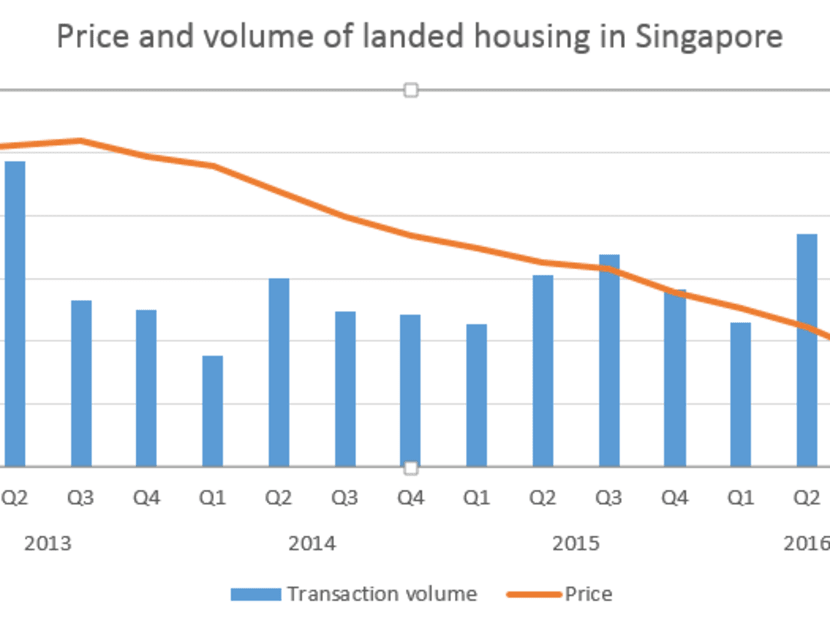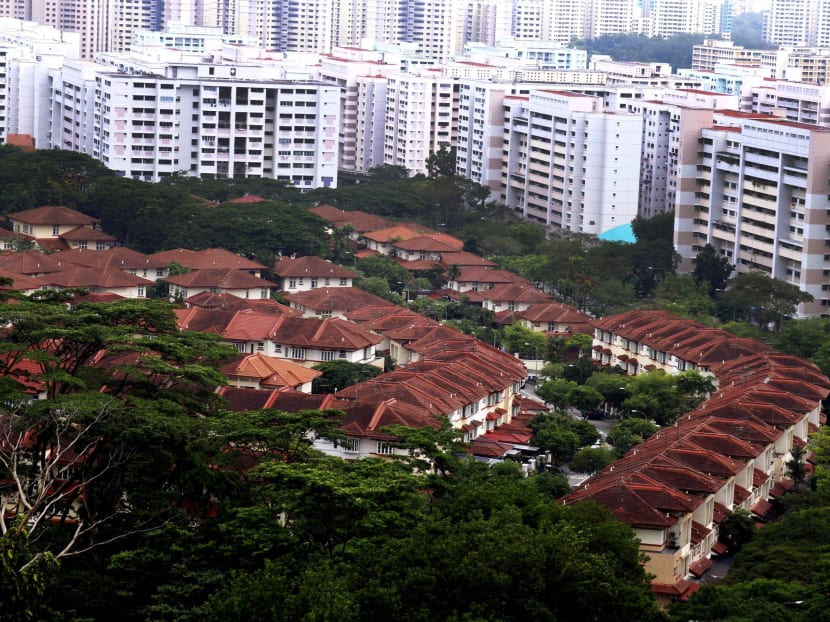Sales of landed homes climb to over 3-year high in Q3
SINGAPORE — The number of landed homes that changed hands in Singapore during the July-to-September quarter rose to the highest in more than three years, as a steep decline in prices drew buyers who had been sitting on the fence.
SINGAPORE — The number of landed homes that changed hands in Singapore during the July-to-September quarter rose to the highest in more than three years, as a steep decline in prices drew buyers who had been sitting on the fence.

The buying momentum will be sustained if sellers continue to be realistic in their pricing as the limited supply of landed properties and their potential for long-term capital appreciation makes them an attractive real estate segment, analysts told TODAY. In the recently concluded third quarter, total transactions in the landed housing segment – which includes detached, semi-detached and terrace homes — climbed 17.5 per cent from the previous three months to 436 units, the highest since the second quarter of 2013, figures by property firm Edmund Tie & Co (SEA) and the Urban Redevelopment Authority (URA) showed.
“Sellers willing to lower prices might have caused more offers from buyers to be accepted, and therefore more transactions consummated,” said Mr Ku Swee Yong, chief executive of International Property Advisor.
The surge in volume came on the back of a 2.2 per cent quarter-on-quarter fall in landed residential property prices in the three months to September, accelerating from the 1.5 per cent fall previously, according to URA data. The decline in landed home prices outpaced that of non-landed homes, which added to the former’s appeal. URA data showed that since the recent peak in the third quarter of 2013, non-landed home prices dipped 9.6 per cent, while the landed segment slipped 14.4 per cent.
This weakening in prices came as measures such as the Additional Buyer’s Stamp Duty (ABSD) and Total Debt Servicing Ratio (TDSR) framework restricted buyers’ purchasing power, which hurt the landed residential property segment more due to their higher price quantum.
Dr Lee Nai Jia, Edmund Tie & Co Southeast Asia’s head of research, noted that there has been more activity in the Loyang area, where landed homes cost below S$1.5 million due to shorter tenures and location. Serangoon is also a popular choice.
“Many buyers view landed housing as assets with strong investment potential as the supply, both future and current, is limited. Additionally, a landed home offers a greater level of privacy and amenities that can be personalised, such as a garden,” he said.
“Given that prices and construction costs for landed homes have decreased, many buyers are looking at older landed homes for reconstruction. Unlike the private non-landed housing, most buyers are purchasing for owner-occupation and are comfortable with future capital appreciation over a longer investment horizon,” he added.
During the last market run-up between the second quarter of 2009 and the recent peak in the third quarter of 2013, landed home prices surged 87.7 per cent, higher than the 56.2 per cent jump in the non-landed segment, URA data showed.
Underpinning the landed homes segment is the scarce supply of such properties.
Mr Ong Teck Hui, national director, research and consultancy at property firm JLL Singapore, noted that as at the second quarter of this year, there were 1,182 landed properties being built, representing just 2.9 per cent of the total number of residential units under construction.
This means that the long-term prospects of landed homes remain bright, with analysts expecting total sales of such homes to come in at 1,300 to 1,500 units for the whole of this year — the highest level since 2013.
Real estate portal iProperty’s Asia Property Market Sentiment Report released last week also found that 98 per cent of respondents in Singapore think that residential properties here remain a viable long-term investment and 83 per cent of them are interested to invest in a landed home. The portal had surveyed 4,667 people online.
“The long-term prospects for the landed sub-market remain positive. Many aspire towards ownership of a landed property, which is within the top tier of the housing market, and this aspiration is likely to continue into the future. Due to limited supply, we can expect superior price appreciation from landed homes over the long term,” Mr Ong said.







